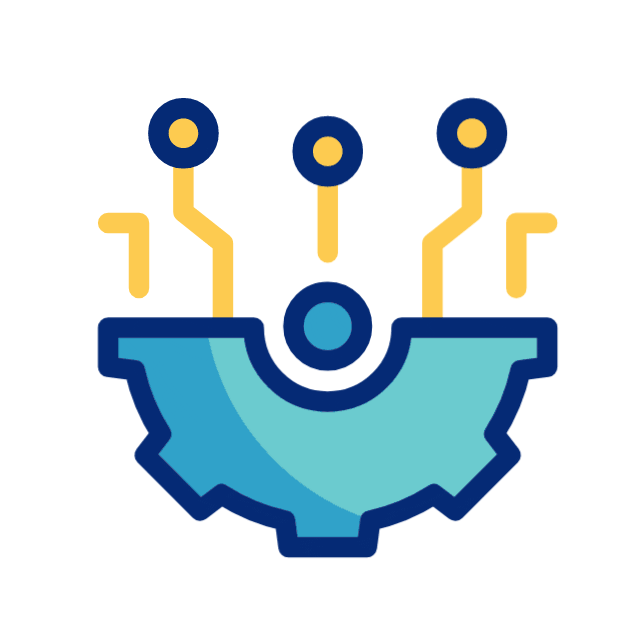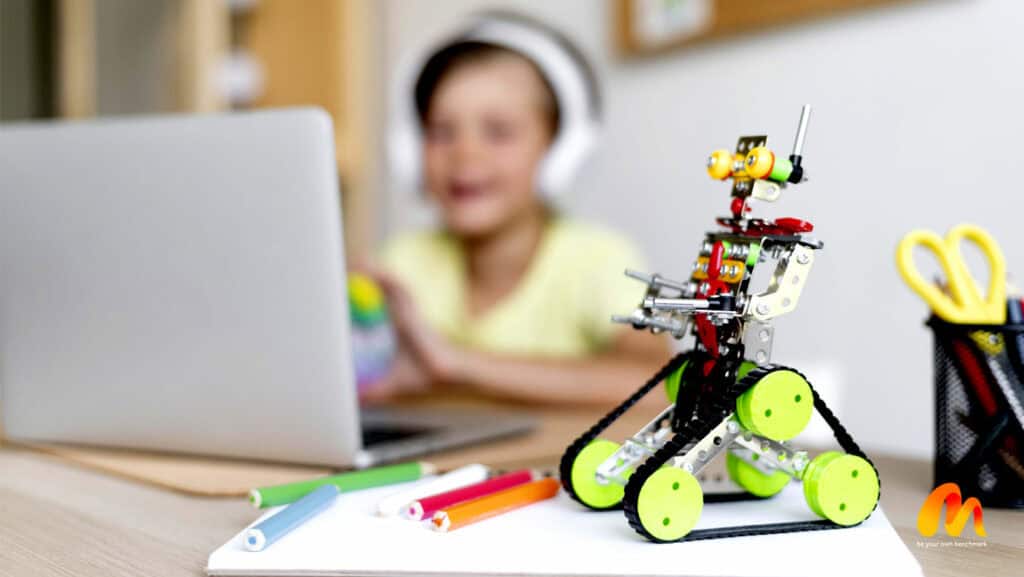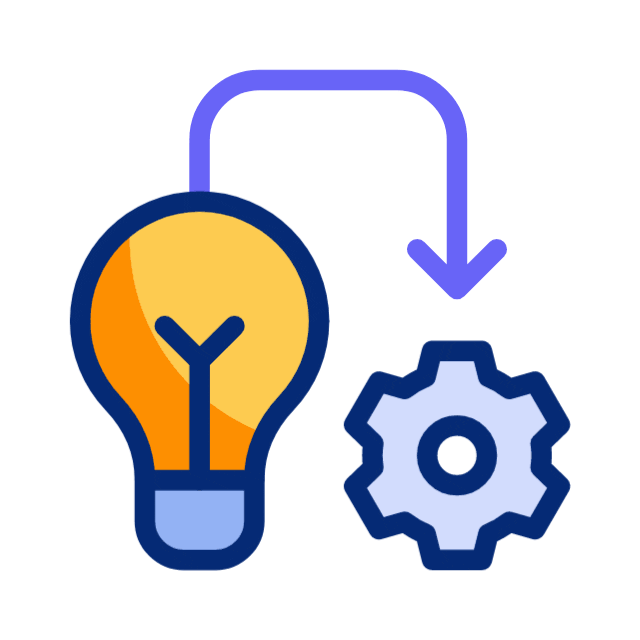STEM (Science, Technology, Engineering, and Mathematics) education has become a cornerstone of modern education, emphasizing critical thinking, problem-solving, and the application of knowledge in real-world scenarios. As the world becomes increasingly driven by technology and innovation, STEM education equips children with the skills they need to succeed in a rapidly changing global economy. This comprehensive blog explores the significance of STEM education for kids, its benefits, and why it is crucial for their future.
Understanding STEM Education
STEM education integrates four major disciplines—science, technology, engineering, and mathematics—into a cohesive learning paradigm based on real-world applications. This approach encourages students to think critically and creatively, solve complex problems, and understand the connections between different subjects.

Components of STEM Education

Science
Involves the study of the natural world, encompassing subjects like Biology, Chemistry, Physics, Geography, and Social Sciences such as psychology, sociology, economics, etc.

Technology
Focuses on applying scientific knowledge for practical purposes, including computer science, information technology, and various forms of digital technology.

Engineering
Concerns the design, construction, and use of machines, structures, and systems. It includes disciplines like mechanical, civil, electrical, and aerospace engineering.

Mathematics
The study of numbers, quantities, shapes, and patterns, serves as the foundation for scientific inquiry and technological advancements.

Benefits of STEM Education for Kids
Develops Critical Thinking and Problem-Solving Skills
STEM education emphasizes critical thinking and problem-solving. Children learn to approach problems systematically, analyze data, and develop logical solutions. These skills are not only essential for STEM careers but are also valuable in everyday life.
Fosters Innovation and Creativity
STEM encourages creativity and innovation by challenging students to come up with new ideas and solutions. This creative approach helps kids think outside the box and fosters a mindset geared towards discovery and innovation.
Enhances Communication and Collaboration
STEM projects often involve teamwork, requiring students to communicate effectively and collaborate with peers. These experiences help kids develop strong communication skills and the ability to work well in teams, which are critical in any professional setting.
Prepares for
Future Careers
With the growing importance of technology and science in the job market, STEM education provides a solid foundation for various career paths. It prepares students for high-demand fields such as engineering, computer science, biotechnology, and environmental science.
Promotes
Lifelong Learning
STEM education instils a love for learning and curiosity about the world. This passion for discovery encourages children to pursue knowledge continuously, even outside the classroom, fostering lifelong learning.
Improves Academic Performance
Engaging in STEM activities has been shown to improve academic performance in other subjects as well. The skills and knowledge gained through STEM education enhance students’ abilities to understand and excel in other areas.
Encourages Adaptability
The ever-evolving nature of STEM fields requires adaptability and continuous learning. By engaging with STEM subjects, children learn to adapt to new information and technologies, preparing them for the future.
Builds Confidence
Successfully tackling STEM challenges builds confidence in children’s abilities. This sense of accomplishment encourages them to take on new challenges and persevere through difficulties.


Importance of STEM Education

Addressing Global Challenges
STEM education equips students with the knowledge and skills needed to tackle global challenges such as climate change, healthcare, and sustainable development. By understanding scientific principles and technological advancements, children can contribute to solving critical issues facing humanity.
Driving Economic
Growth
A workforce skilled in STEM is essential for economic growth and competitiveness. Countries that invest in STEM education are better positioned to lead in innovation, create high-paying jobs, and sustain economic development.


Bridging the
Gender Gap
Promoting STEM education among all children, regardless of gender, helps bridge the gender gap in STEM fields. Encouraging girls to pursue STEM subjects ensures a diverse and inclusive workforce, driving creativity and innovation.
Enhancing National
Security
STEM education is vital for national security, providing the skills needed to develop advanced technologies and maintain technological superiority. This includes cybersecurity, defense technologies, and infrastructure development.


Supporting Informed Citizen
A population educated in STEM is better equipped to make informed decisions about complex issues. Understanding scientific principles and technological impacts helps citizens participate in discussions and policymaking on critical topics like public health, environmental protection, and technological ethics.
Encouraging Kids to Learn STEM
Early Exposure
Introducing STEM concepts at an early age is crucial for developing interest and proficiency. Simple activities, such as building blocks, puzzles, and science experiments, can spark curiosity and lay the foundation for more advanced learning.
Hands-On Learning
Hands-on learning experiences make STEM subjects more engaging and accessible. Activities like coding, robotics, and lab experiments allow children to apply theoretical knowledge in practical scenarios, enhancing understanding and retention.
Integrating STEM into
Daily Life
Incorporating STEM learning into daily life can make these subjects more relevant and interesting. Parents and educators can point out the STEM principles behind everyday activities, such as cooking, gardening, and using technology.
Utilizing Technology and Digital Resources
Leveraging technology and digital resources can enhance STEM education. Educational apps, online courses, and virtual labs provide interactive and immersive learning experiences, making STEM subjects more appealing.
Encouraging Exploration and Inquiry
Encourage children to ask questions, explore new ideas, and experiment with different solutions. Fostering a sense of curiosity and inquiry helps develop critical thinking and problem-solving skills.
Providing
Role Models
Introducing children to STEM role models can inspire them to pursue these fields. Highlighting the achievements of scientists, engineers, and technologists, especially those from diverse backgrounds, can motivate kids to see themselves in these roles.
Supporting STEM Programs & Extracurricular Activities
Participation in STEM programs and extracurricular activities, such as science clubs, coding camps, and math competitions, can deepen interest and proficiency in STEM subjects. These activities provide opportunities for hands-on learning, collaboration, and mentorship.
Creating a Positive Learning Environment
A supportive and positive learning environment encourages children to take risks and embrace challenges. Recognizing effort and celebrating successes, no matter how small, builds confidence and fosters a growth mindset.
Implementing Effective
STEM Education Strategies

Integrating STEM Across the Curriculum
Integrating STEM principles across the curriculum ensures that students see the relevance of these subjects in various contexts. Interdisciplinary projects that combine science, math, technology, and engineering with other subjects like art, history, and literature can provide a holistic learning experience.

Fostering Problem-Based Learning
Problem-based learning (PBL) engages students in solving real-world problems. This approach encourages critical thinking, creativity, and collaboration. PBL projects can be designed around community issues, global challenges, or industry-specific problems.

Emphasizing Project-Based Learning
Project-based learning involves students working on extended projects that require research, planning, and execution. These projects can be individual or collaborative and often culminate in presentations or demonstrations. Project-based learning promotes a deeper understanding and application of STEM concepts.

Utilizing Technology and Digital Tools
Incorporating technology and digital tools into the classroom enhances STEM education. Tools like coding platforms, simulation software, and online collaboration tools provide interactive and engaging learning experiences.

Providing Professional Development for Educators
Effective STEM education requires well-trained educators. Professional development opportunities, such as workshops, courses, and conferences, help teachers stay updated on the latest STEM teaching methods and technologies.

Collaborating with Industry and Community Partners
Partnerships with industry and community organizations can provide valuable resources and real-world learning opportunities. These collaborations can include guest speakers, field trips, internships, and mentorship programs.

Encouraging Family and Community Involvement
Family and community involvement plays a crucial role in supporting STEM education. Parents can reinforce STEM learning at home through activities and discussions, while community events and programs can provide additional learning opportunities.

Assessing and Evaluating STEM Programs
Regular assessment and evaluation of STEM programs ensure they meet educational goals and standards. Feedback from students, educators, and parents can help identify areas for improvement and inform future program development.
STEM education is essential for preparing children for the future. It develops critical thinking, problem-solving, and creativity, which are crucial for success in the 21st century. By fostering a love for STEM subjects and providing effective learning experiences, we can equip children with the skills and knowledge they need to thrive in an increasingly technological world. Investing in STEM education not only benefits individual students but also contributes to the overall progress and innovation of society. At Mynsha Learning, we are committed to providing high-quality STEM education that inspires and empowers the next generation of innovators, scientists, and leaders. Explore our programs today and give your child the foundation they need for a bright future in STEM.
FOLLOW US ON FACEBOOK, INSTAGRAM & LINKEDIN for regular updates.
#EffectiveStudyTechniques #BrainDevelopment #CognitiveDevelopment #EarlyLearning #ChildDevelopment #EducationalTools #LearningJourney #MemoryImprovement #ParentingTips #ChildhoodEducation #HolisticDevelopment #STEMeducation #LearningIsFun #EducationReform #STEMEducation #STEMForKids #FutureInnovators #STEMLearning #EducationMatters #STEMSkills #KidsInSTEM #TechEducation #FutureScientists #EngineeringForKids #STEMAdvantage #LearnSTEM #STEMBenefits #STEMSuccess #InnovateWithSTEM #STEMFuture #EducationForAll #STEMPrograms #STEMCommunity #STEMCareers




